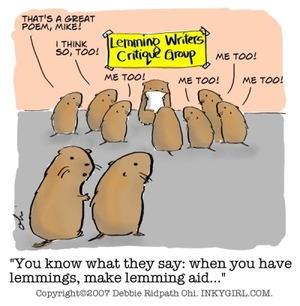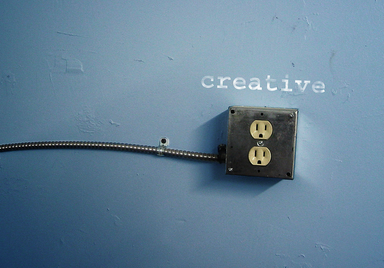|
Ever had the urge to write a book? This is my second post about the processes involved with writing and publishing as an indie author. The first post was ‘Decide what kind of writer you are’ (bottom line: Write for yourself, not for other people, so that your passion shows through).
Topic #2: Boost your writing skills. I’m not a great writer. But I’m getting better. My next novel will be better than the last one, and the one after that will be even better. How do I know this? Because the more time I spend doing something, the better I get at it, whether it’s writing, swimming, or hunting the elusive wild turkey (that’s a topic for another day). Writers often say the best advice is B.I.C. This stands for Butt In Chair. In other words, if you want to be a writer, sit down and write. Write every day, at a scheduled time if possible. William Faulkner said: “I write only when I’m inspired. Fortunately I’m inspired at 9 o’clock every morning.” What he meant was that he forced himself to write every day, not just when he felt like it. Those of you who are teachers might say this is misleading. Without a foundation of knowledge, B.I.C. could result in the same bad habits becoming entrenched. You’re right. So I recommend supplementing B.I.C. time with learning activities. Everyone learns differently, but here’s what I have done. First, I have a shelf full of how-to writing books. They were all helpful. You can also take creative writing classes. I took several online classes with Gotham Writers Workshop (http://www.writingclasses.com). But these classes led to what has worked best for me, which is interacting with other writers—having them read and critique my work. What made the classes successful was that the students exchanged critiques every week, one novel chapter at a time. Some of the students from my last class formed a writing group that worked together for years. You can easily form a writers group online or in person. The concept is simple: every week the group reads and provides feedback on the work of two group members. If you have six in your group, then each person must submit a new chapter (or short story) every three weeks to be critiqued. This provides structure and motivation to keep writing. I would trade all my writing books for one year of interaction with a small group of like-minded writers. And you learn just as much from providing feedback as you do from receiving feedback. Bottom line: Write every day, whether you feel inspired or not. Have others critique your writing. And remember, write what you love to read.
1 Comment
People have asked me about the processes involved with writing and publishing as an indie author. I thought some of you might find it interesting. So this is the first in a series of posts, each describing a different aspect of the process.
Topic #1: Decide what kind of writer you are. Let’s be honest, you don’t become an indie author to get rich (although this happens more frequently these days—look up Hugh Howey or Scott Sigler, among others). You do it because you like to write. It is a creative outlet, and we all need creative outlets, don’t we? I write because it makes me happy to create something from nothing. But my books are not for everyone. I grew up reading sci-fi and adventure books. I collected and read everything Edgar Rice Burroughs wrote (Tarzan, John Carter of Mars, At the Earth’s Core, etc.). And so writing Diffusion and Infusion was a labor of love for me. The question is: what do you love to read? If you love poetry, you should write poetry. You could take a poetry class, or read some books on writing poetry, or simply study the work of great poets. Do you love to read steamy romances? If so, you should write romances. Life is too short to spend precious free time doing things we don’t love. Other people may not like the books you like. But don’t write for other people. Write for yourself. If you do, your passion will show through. It is much easier to become good at something when you are passionate about it. And keep in mind the world is changing. With indie publishing distributors such as Amazon, you now have access to readers all over the world. Maybe your friends and neighbors don’t like the books you like, but you can bet your best writing pen that somewhere in the world there are people who do. Even if you write zombie romances set in prehistoric times. What kind of writer is inside of you waiting to come out? As a teacher, I loved creating new lessons I thought would engage students. As an Instructional Technology Coordinator, I loved creating workshops for teachers and writing grants to fund exciting programs involving technology in the classroom. I even enjoyed writing tutorials explaining how to do certain tasks with software apps. These were my creative outlets for the 29 years I was an educator. Now that I am writing fiction full time, that is my creative outlet (I love sharing the fruits of my efforts, my novels: http://goo.gl/rojJEA).
I have a neighbor who never stops working on the landscaping of his patio and yard. I think that’s his creative outlet, and I am somewhat envious of his skills. I have a son who is a wizard with words and rhetoric, another son who paints decoys and can cook any wild game or fish, a daughter who is mastering jiu jitsu, one who can expertly cut and style any head of hair, and one who creates the most imaginative wedding cakes. My wife Trish can take any set of ingredients and create a delicious meal (which can never be repeated in the exact way again, as it is an art rather than a science). You might like to paint with watercolors. You might like to create fun scrapbooks to pass down to your children. Or perhaps you garden and enjoy coming up with new configurations of soil, compost, and plants. Or maybe you like to redecorate the rooms of your house, creating fresh new living spaces. It occurs to me that expressing ourselves creatively is part of being human. I imagine everyone has a creative outlet of some kind. If you haven’t thought about this, what is your creative outlet? Whatever it is, be sure to nurture it, study it, expand it, make time for it, and most of all, love it. It is, after all, part of what makes us human, don’t you think? What is your creative outlet? Have you ever worked so hard and so long on a project that you’re not sure how to feel when it is finally completed? Some endeavors are intensive to the point where they become part of who you are. For years I have worked on my novels, Diffusion and Infusion. It was a reason to get out of bed early and stay up late. In the shower and on my runs I would contemplate possible character traits and plot twists. I would have dreams that took place in the novels’ setting. And now, after dozens of revisions, wrestling with the pros and cons of different routes to publishing, working with a designer on cover designs that appeal mainly to me but possibly not to others, and learning the mystifying minutiae of book formatting and setup for eBooks and print books, Diffusion and its sequel Infusion are available for the world to see.
Completing such a project is both a blessing and a curse. I guess it’s time for me to start a new novel. Has anyone else experienced such a feeling? Both novels are available on my Amazon author page. Diffusion is available as a Kindle eBook or as a print book. Infusion is available as a Kindle book, and the print version will be available within a few days. |
Stan's Cogitations
Everyone needs a creative outlet. That's why I write. Archives
July 2024
|




 RSS Feed
RSS Feed